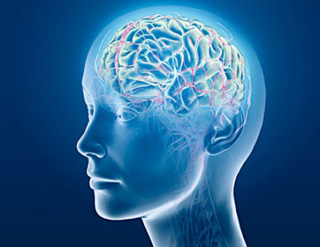 |
Saturday, 26 May 2012
Why the early bird doesn't catch the worm!
Mood:
 cheeky
Topic: Sleep cheeky
Topic: Sleep

It has long been accepted that the early bird catches the worm. But new research shows that early risers find their inspiration in the evening while night owls are at their creative best in the morning. The study is unlikely to be embraced by those who enjoy a morning lie-in nor those who get jump out of bed in order to get the creative juices flowing. Scientists measured the responses of both kinds of participants, the 'morning-type' and the 'evening-type' and found the reactions from both sets to certain problems contrasted with the popular beliefs. Full Story from dailymail.co.uk
Posted by Neil Bartlett DHyp M.A.E.P.H
at 01:01 MEST
Updated: Saturday, 26 May 2012 02:18 MEST
Friday, 25 May 2012
Parents Experience Greater Happiness, Psychologists Find
Mood:
 chatty
Topic: Hypnosis & Psychology chatty
Topic: Hypnosis & Psychology

Contrary to recent scholarship and popular belief, parents experience greater levels of happiness and meaning in life than people without children, according to researchers from the University of California, Riverside, the University of British Columbia and Stanford University. Parents also are happier during the day when they are caring for their children than during their other daily activities, the researchers found in a series of studies conducted in the United States and Canada. These findings appear in a paper -- "In Defense of Parenthood: Children Are Associated With More Joy Than Misery" -- which will be published in a forthcoming issue of Psychological Science, the flagship journal of the Association for Psychological Science. "We are not saying that parenting makes people happy, but that parenthood is associated with happiness and meaning," explained Sonja Lyubomirsky, professor of psychology at UC Riverside and a leading scholar in positive psychology. Full Story from sciencedaily.com
Posted by Neil Bartlett DHyp M.A.E.P.H
at 01:01 MEST
Updated: Friday, 25 May 2012 02:03 MEST
Thursday, 24 May 2012
A Cab Ride I'll Never Forget
Mood:
 happy
Topic: Inspirational happy
Topic: Inspirational

Twenty years ago, I drove a cab for a living. One night I took a fare at 2:30 AM, when I arrived to collect, the building was dark except for a single light in a ground floor window. Under these circumstances, many drivers would just honk once. But I had seen too many impoverished people who depended on taxis as their only means of transportation. Unless a situation smelled of danger, I always went to the door. This passenger might be someone who needs my assistance, I reasoned to myself. So I walked to the door and knocked. 'Just a minute', answered a frail, elderly voice. I could hear something being dragged across the floor. After a long pause, the door opened. A small woman in her 80's stood before me. She was wearing a print dress and a pillbox hat with a veil pinned on it, like somebody out of a 1940s movie. By her side was a small nylon suitcase The apartment looked as if no one had lived in it for years. All the furniture was covered with sheets. There were no clocks on the walls, no knick-knacks or utensils on the counters. In the corner was a cardboard box filled with photos and glassware. "Would you carry my bag out to the car?" she said. I took the suitcase to the cab, then returned to assist the woman. She took my arm and we walked slowly toward the curb. She kept thanking me for my kindness. "It's nothing", I told her. "I just try to treat my passengers the way I would want my mother treated." "Oh, you're such a good man," she said. When we got in the cab, she gave me an address, and then asked, "Could you drive through downtown?" "It's not the shortest way," I answered quickly. "Oh, I don't mind," she said "I'm in no hurry. I'm on my way to a hospice." I looked in the rear-view mirror. Her eyes were glistening. "I don't have any family left," she continued. "The doctor says I don't have very long." I quietly reached over and shut off the meter. "What route would you like me to take?" I asked. For the next two hours, we drove through the city. She showed me the building where she had once worked as an elevator operator. We drove through the neighborhood where she and her husband had lived when they were newlyweds. She had me pull up in front of a furniture warehouse that had once been a ballroom where she had gone dancing as a girl. Sometimes she'd ask me to slow in front of a particular building or corner and would sit staring into the darkness, saying nothing. As the first hint of sun was creasing the horizon, she suddenly said, "I'm tired. Let's go now." We drove in silence to the address she had given me. It was a low building, like a small convalescent home, with a driveway that passed under a portico. Two orderlies came out to the cab as soon as we pulled up. They were solicitous and intent, watching her every move. They must have been expecting her. I opened the trunk and took the small suitcase to the door. The woman was already seated in a wheelchair. "How much do I owe you?" she asked, reaching into her purse. "Nothing," I said. "You have to make a living," she answered. "Oh, there are other passengers," I responded. Almost without thinking, I bent and gave her a hug. She held onto me tightly. Our hug ended with her remark, "You gave an old woman a little moment of joy." After a slight pause, she added, "Thank you." I squeezed her hand, and then walked into the dim morning light. Behind me, a door shut. It was the sound of the closing of a life. I didn't pick up any more passengers that shift. I drove aimlessly lost in thought. For the rest of that day, I could hardly talk. What if that woman had gotten an angry driver, or one who was impatient to end his shift? What if I had refused to take the run, or had honked once, then driven away? On a quick review, I don't think that I have done anything more important in my life. We're conditioned to think that our lives revolve around great moments. But great moments often catch us unaware, beautifully wrapped in what others may consider a small one. Article Source - helpothers.org
Posted by Neil Bartlett DHyp M.A.E.P.H
at 01:01 MEST
Updated: Thursday, 24 May 2012 02:01 MEST
Wednesday, 23 May 2012
Don't look back in anger!
Mood:
 a-ok
Topic: Health a-ok
Topic: Health

Dwelling on the past may not only stop you from enjoying each day to the full – it could also be bad for your health. Research suggests that people who look back at their past experiences full of regrets about missed opportunities or with bitterness about how they have been treated are more likely to fall ill and generally have a poorer quality of life. Those who look back in anger are also more sensitive to pain, it found. It also suggested that focusing too much on the future does not harm health – but can stop people enjoying what they have. The happiest and healthiest people, according to the researchers, are those who manage to enjoy the here and now, while making time to learn from the past and plan for the future. Full story from dailymail.co.uk
Posted by Neil Bartlett DHyp M.A.E.P.H
at 01:01 MEST
Updated: Wednesday, 23 May 2012 09:52 MEST
Tuesday, 22 May 2012
Emotional cleanse for stress reduction
Mood:
 chatty
Topic: Alternative Health chatty
Topic: Alternative Health

Every bit as important as physical detoxification, an emotional cleanse will free your mind and body in ways you can't imagine prior to doing it. It isn't always easy, but I have never met anyone who followed the protocol and regretted doing it. Beyond the immediate personal benefits, emotional cleansing may prevent the onset of disease, as there are scientific links between chronic emotional angst or stress and the major diseases of today. One Harvard study of 1,305 men with an average age of 62 revealed that the angriest men were three times more likely to develop heart disease than the most placid ones. According to researchers at UCLA's Jonsson Comprehensive Cancer Center, stress acts as a sort of fertilizer that significantly accelerates the spread and progression of breast cancer in animals. Immune cells, which normally protect the body against disease, are being biologically reprogrammed through stress into cells that actually help cancers grow and metastasize. In a review of the scientific literature on the relationship between stress and disease, Carnegie Mellon University psychologist Sheldon Cohen has found that stress is a contributing factor in human disease, and in particular depression, cardiovascular disease and HIV/AIDS. No doubt about it, chronic emotional stress contributes to fatal disease. Don't allow it! Like a dietary cleanse, the emotional cleanse allows the emotional body to reset itself, letting go of the cumbersome toxic load and reducing stress significantly. Unless you consciously and deliberately engage in the emotional cleansing process, you are leaving your future health to chance. Don't leave your health to chance. Follow the recipe. Besides, it is the right thing to do. Recipe for an emotional cleanse The recipe will call to mind specific people and events and ask you to take certain actions, always erring on the mature expression of your emotions, rather than an immature expression. 1. Cleanse anger Identify the people at whom you are angry. Once identified, the recipe calls for you to write down the mature expression of your issue (not the immature one). Once you are clear on your adult position on the issue, the road forward will be obvious. 2. Cleanse guilt Identify people you have wronged and of whom you need to ask forgiveness. Identify specifically what you did or how you acted poorly toward each person and what, if any, restitution you feel is appropriate. Make plans to act on your insights. 3. Cleanse negative memories you are holding onto Write a list of negative memories that still bother you. Once you have your list, review each memory completely and from a distance. Imagine you are viewing the memory as a neutral observer from a safe and comfortable distance. Ask yourself what there is to learn from each memory. Record your thoughts. 4. Cleanse self-criticism Notice the specific words you use to criticize yourself. Take a paper and pencil and write the words self-criticism at the top. Then, write down all the phrases the come to mind that you use to beat yourself up. Don't censor yourself. Review each phrase, curious about its origins. Next, completely clear your mind by listening passively but intently to some mundane sound in your immediate environment (the sound of a refrigerator motor, a fan, the hum of your computer of the distant traffic). Once you are settled and clear, throw the paper away. 5. Develop resources Finally, immerse yourself in a positive memory, seeing what you saw at the time, hearing what you heard and feeling what you felt. Imagine many, many more of these positive memories being scattered into your future. By ending on a positive note and casting positivity into your future, you set the stage for good things to come. Positive expectations and optimism are linked to health and longevity. The moral of the story: Take charge of your emotional health. Consciously process your emotions. Don't allow stress to dictate your state of being. When this happens, your mind and body become a habitat in which disease is more likely to flourish. This is a proven fact. If you cannot complete the emotional cleanse on your own, get some help and support in the process. It is that important. Article Source - naturalnews.com
Posted by Neil Bartlett DHyp M.A.E.P.H
at 01:01 MEST
Updated: Tuesday, 22 May 2012 02:13 MEST
Monday, 21 May 2012
Neuroplasticity, Changing our Belief about Change
Mood:
 a-ok
Topic: Hypnosis & Psychology a-ok
Topic: Hypnosis & Psychology

A dangerous belief in our culture is that we can't change. We’ve all heard the disempowered statements: “He’s just grumpy. He can’t change that.” or “I will always be anxious. It's the way I was born.” While we most certainly have genetic predispositions, the brains of individuals’ young and old can change in amazing ways. Neuroplasticity is a fancy way of saying that our brains can change. We are not victims of our neurons or genes. We are empowered creators of our mental states. The erroneous belief that we are "set in stone" can stop people from trying to change and take away their responsibility. In the same way that germ theory altered the way we look at sanitation and hygiene, I think that spreading the knowledge about our brain’s ability to change can alter the way our culture approaches emotions, attitudes, and values. Our brains can change. Our brains are made up of billions of neurons. Neurons connect to one another, forming pathways that relay information. We learn things by forming neural connections in response to associations in our everyday experiences. In learning to drive a car, we experience the connection between red traffic lights and pressing the brake. We form a neural pathway for this association. Each time we brake at a red light, we reinforce and strengthen the neural pathway. As the saying goes, "Neurons that fire together, wire together." The more we practice something, the more we strengthen the pathway, and the easier the skill becomes. Our behavioral response can become almost automatic. Our brain can also prune old neural pathways to quiet or unlearn associations. For example, after you move to a different home, you learn the directions to your new place and stop practicing your old path. But in those first few weeks after a move, have you ever found yourself engrossed in another thought and accidentally pulling into the driveway of your old home because your automatic pathway took over? Luckily, by refraining from the old directions and practicing the new way home, you strengthen a new neural pathway and the old neural pathway weakens. It's a good thing our brains can change, or we would still be pulling up to our childhood home. Similar to physical skills like driving, the brain also forms neural pathways in learning and practicing emotional skills. Your emotional responses to experiences in your world are the result of well-worn neural pathways that developed over your lifetime. While our genes influence our temperament, research has demonstrated that our environment and our own mind can physically alter our brains and thus our emotional responses. This means that emotions that we want more of in our life and our world, like happiness, patience, tolerance, compassion, and kindness, can be practiced and learned as skills. Other emotions, like anxiety, stress, fear, or anger, can be dampened. Keeping in the car motif, let’s talk about an emotional association: traffic and anger. When we get stuck in traffic, an automatic response can be anger or frustration. But, by feeling angry every time we are in traffic, we are strengthening that neural pathway and cementing that emotional response. When there is nothing we can do in that moment but accept the traffic, wouldn’t it be great to feel positive emotions instead? We can just observe the negative emotion that we are feeling and try practicing a different emotional response. We can start linking traffic with stillness and peace. This would be difficult at first because we want to let the well-developed neural pathway leading to anger fire, but by inhibiting that pathway, we help unwire those connections and strengthen a different response. As we practice responding with peace, we strengthen a new neural pathway and it becomes easier to choose. Using neuroimaging, researchers have demonstrated significant success in reducing anxiety, depression, phobia, and stress with cognitive-behavioral therapy or interpersonal psychotherapy. By learning different strategies to recognize negative thoughts and emotions and practice alternative responses over time, neural pathways in the brain are physically altered. Science has only recently recognized the value of investing in research on behaviors that promote well-being, including compassion and happiness. By comparing the brains of experts and novices in compassion meditation, neuroscientists illustrated changes in the brain region responsible for empathy during and after meditation. Researchers are just beginning to examine the effect of training novices in skills to increase compassion. While interventions have demonstrated positive impacts on emotional states and prosocial behaviors, we look to future studies to determine alterations in the structure and function of the brain in novices who undergo contemplative and emotional training.
Let's learn and practice compassion, kindness, and happiness. Knowing that our brains can change, we then ask, what do we want in our brains? And as a result, what do we want in our world? Most people of good will yearn for happiness, compassion, and love. Let’s start practicing. Gratitude reflections, compassion priming, and meditation interventions are some strategies found to enhance well-being and increase prosocial behavior. Several studies have shown the positive impact of gratitude journals, which involve self-guided listing of what you are thankful for. Individuals who kept a daily gratitude journal reported higher levels of positive emotions, including feeling attentive, determined, energetic, enthusiastic, excited, interested, joyful, and strong, compared to individuals who kept a journal on daily hassles or ways in which one was better off than others (downward social comparison). In addition, individuals who maintained daily gratitude journals were more likely to offer emotional support to others and help someone with a problem7. Contemplative interventions, born from the collaboration of meditation traditions and emotion science, have centered on developing mindfulness to enhance compassion and happiness in the lives of individuals. One recent study provided an 8-week training program in secular meditation to female schoolteachers and measured their responses to stress, conflict, and compassion. The intervention significantly reduced rumination, depression, and anxiety while increasing mindfulness, empathy, compassion, and stabilizing hostility and contempt compared to a control group6. In my experience, learning about the concept of neuroplasticity and finding the skills to change my emotional responses has immensely improved my life. Before grasping this, I thought my mind was a black box. I didn't understand why I felt certain things beyond the immediate external circumstances. I had no idea how to change things. I scoffed at seeing a therapist because I couldn't imagine what they would help me with. I had no idea what I would even say to a therapist. Luckily, the good ones can help you understand your mind and the process of change. You don't even have to know where to start; the decision to change is enough. The practice of meditation gave me the set of skills to guide my own transformation. It has been the most life altering skill that I have gained. I shifted from thinking that my emotion and thoughts owned me to feeling like I could play a role in changing my state. This is challenging work and takes patient practice, but as I am experiencing the fruits of these skills, peaceful relationships, a joyful outlook on life, and a safe harbor within myself during difficult times, I am determined to work even harder. Neuroscience, positive psychology, and contemplative traditions have given us a roadmap. We know our brains can change based on our environment and our behaviors. What if we started building and reinforcing the neural pathways of love, cooperation, forgiveness, and kindness so that these things became our automatic response? What if we adopted and shared this belief that we can change and took responsibility for our outlook on life? What if we taught children in schools about their ability to reflect on and guide their emotions? What if we started priming those around us in our families and community with our own grateful reflections and kind actions? What if our compassionate actions in schools, families, and communities started shifting our culture? I find these possibilities exhilarating and hopeful. By learning and practicing these positive emotional responses, I think our world can discover a new way home and pull into the driveway of compassion. Full Story from dailygood.org
Posted by Neil Bartlett DHyp M.A.E.P.H
at 01:01 MEST
Updated: Monday, 21 May 2012 10:03 MEST
Sunday, 20 May 2012
What Causes Deja Vu?
Mood:
 chatty
Topic: Hypnosis & Psychology chatty
Topic: Hypnosis & Psychology

That distinct illusion of having been there and done that has no explanation. The parapsychologist will tell you it's a past life experience. Yogi Berra will remind you it seems like you've felt it before. And most scientists will throw their hands up. Some believe déjà vu involves emotional responses to similar events; others figure the brain short circuits, sending an event to memory just a split second before putting it into consciousness. Its fleeting nature makes déjà vu about as easy to study as the afterlife. Some people have a chronic variety, though, and so one study is attempting to get inside their minds. Full Story from lifeslittlemysteries.com
Posted by Neil Bartlett DHyp M.A.E.P.H
at 01:01 MEST
Updated: Sunday, 20 May 2012 02:22 MEST
Saturday, 19 May 2012
DNA-Destroying Chip Being Embedded Into Mobile Phones
Mood:
 d'oh
Topic: Conspiracy / Corruption d'oh
Topic: Conspiracy / Corruption

According to Dr. Boian Alexandrov at the Center for Nonlinear Studies at Los Alamos National Laboratory in New Mexico, terahertz (THz) waves destroy human DNA. The waves literally unzip the helix strand. Now a team of technologists at UT Dallas are planning to take chips broadcasting THz waves and embed them into mobile phones for use as an imaging system for consumers, law enforcement and medical personnel… a potentially deadly technology that could eventually kill or sicken millions of people. The controversial THz scanner technology used by the TSA at many of the nation’s airports is being adapted for cell phone use. Studies of terahertz radiation have caused experts to raise alarms over the significant health risks to humans. Recently major media touted a new chip that permits the adaption of a THz generating device to be embedded into cellular phones. Full Story from fourwinds10.net
Posted by Neil Bartlett DHyp M.A.E.P.H
at 01:01 MEST
Updated: Saturday, 19 May 2012 02:05 MEST
Friday, 18 May 2012
Understanding Karma
Mood:
 bright
Topic: Hypnosis & Psychology bright
Topic: Hypnosis & Psychology

One of the most misunderstood notions in Eastern thought is that of karma. In the West, we often think about good karma and bad karma --- you do something good, good will come back to you; you do something bad, and bad will come back. In fact, nothing could be further from the truth. Karma is about action, non-action, responsibility, accountability and consequence. Karma literally means ‘action'. Karma Yoga is the yoga of action. What that means, in the context of the Yoga tradition, is lending ourselves to society and being of service to other human beings. One of the most familiar of Karma Yogis in modern times is Ram Dass who, along with being a primary voice for spiritual awakening in the West, established the Seva Foundation, which provides spiritual support to the dying. Another familiar person who falls into this category would be Mother Teresa, whose Missionaries of Charity are familiar to almost all of us. Full Story from psychologytoday.com
Posted by Neil Bartlett DHyp M.A.E.P.H
at 01:01 MEST
Updated: Friday, 18 May 2012 01:46 MEST
Thursday, 17 May 2012
Secret sugars in your food!
Mood:
 chatty
Topic: Health chatty
Topic: Health

Are you feeling virtuous about your healthy breakfast of wholegrain cereal washed down with a glass of orange juice? After all, it’s better than an artery-clogging fry-up. In terms of fat, at least. But few of us realise that a bowl of Bran Flakes plus juice will account for half our recommended daily amount of sugar. We all know the dangers of too much salt, fat and calories in our diet, but health professionals warn that not enough of us stop to consider our sugar intake. Full Story from dailymail.co.uk
Posted by Neil Bartlett DHyp M.A.E.P.H
at 01:01 MEST
Updated: Thursday, 17 May 2012 02:05 MEST
Newer | Latest | Older
|
|











